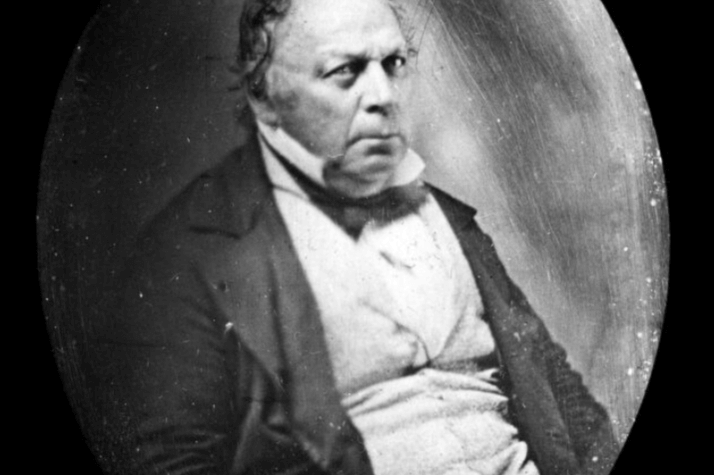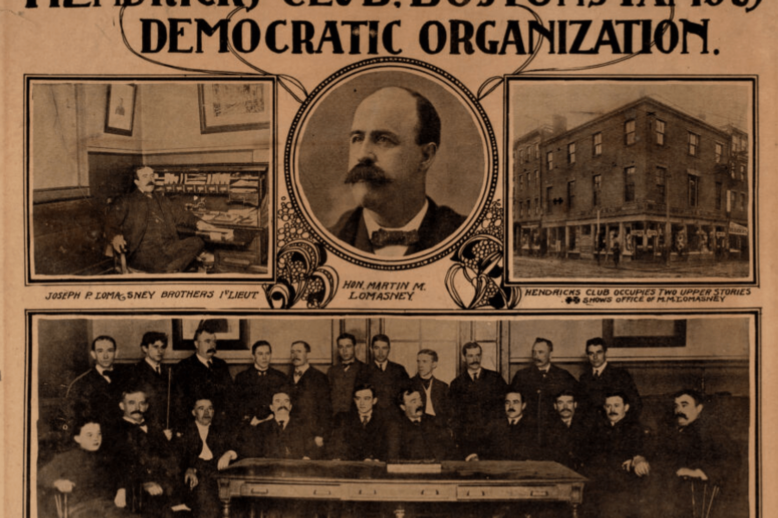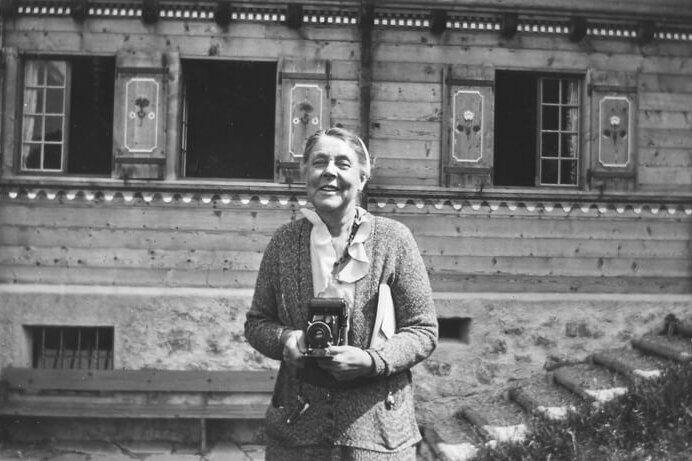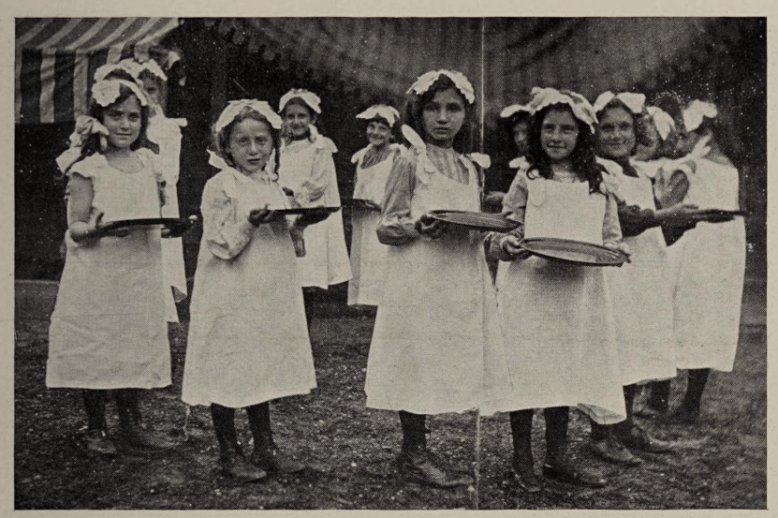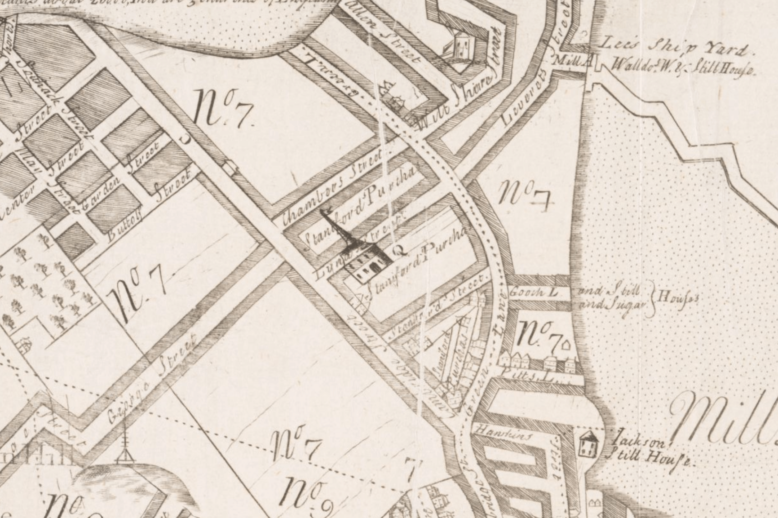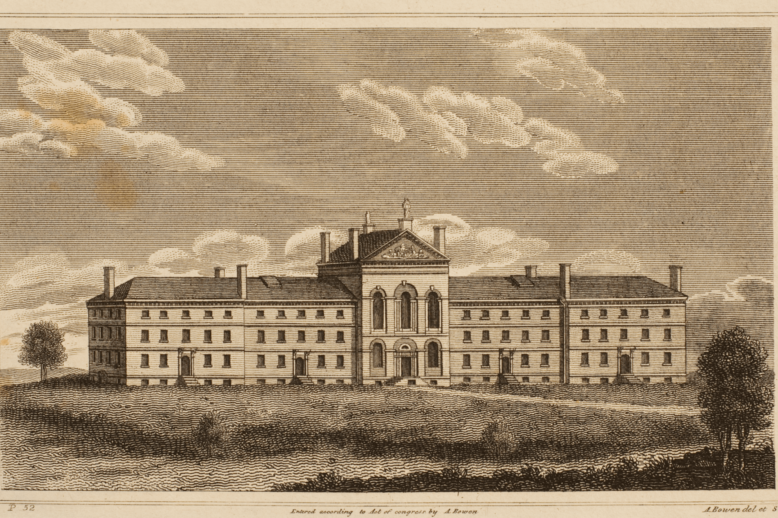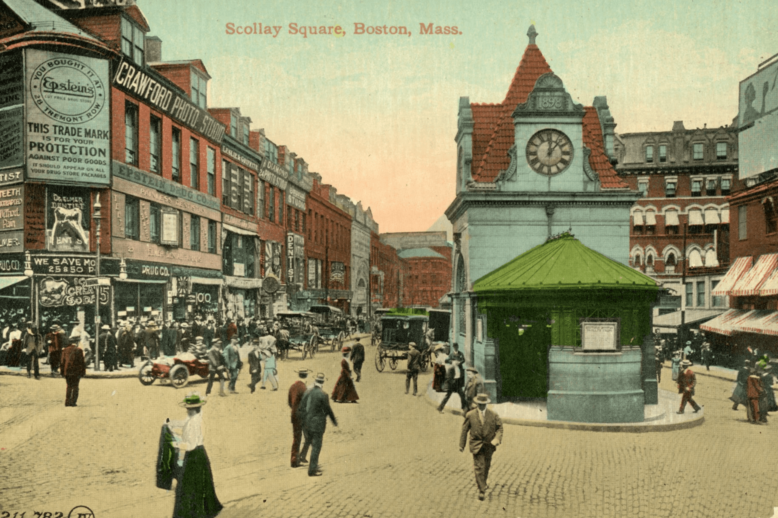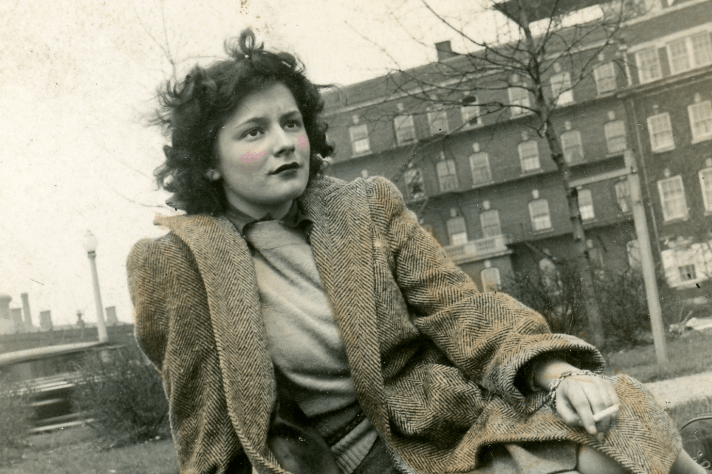Topic: Social & Religious Institutions
Settlement houses, churches, almshouses, women’s shelters, synagogues, priests, social workers
Architect Alexander Parris (1780-1852) designed some of Boston’s most enduring neoclassical architectural landmarks, from Quincy Market to St. Paul’s Church. Parris also played a role in three notable projects in the West End: Massachusetts General Hospital’s Bulfinch Building, the Leverett Street Jail, and St. Joseph’s Catholic Church.
After Martin Lomasney (1859-1933), the legendary “Mahatma of Boston,” made John Ignatius Fitzgerald (1882-1966) a precinct captain at age 18, Fitzgerald became Lomasney’s right-hand man. Their political relationship provides a window into the inner workings of early-twentieth-century ward politics in the West End.
Helen Osborne Storrow (1864-1944) and James Jackson Storrow (1864-1926) were influential Bostonian philanthropists. Much of their work had a lasting impact on the West End, especially through their support of the West End House, Charles River Basin development, and Saturday Evening Girls’ club.
Founded in 1894, the Frances E. Willard Settlement House was located on the West End’s Chambers Street for nearly five decades. The Settlement House aimed to serve the neighborhood’s immigrant population and factory workers by offering social services, community clubs, and housing to young women and children.
The original West Church, a wood-framed structure erected in 1737 at the corner of Cambridge and Lynde Streets, played a significant role in Revolutionary-era Boston. At this site, minister Jonathan Mayhew preached for civil liberties and resistance to tyranny, influencing prominent patriots such as John Adams and Paul Revere. The church was used as barracks by British troops during their occupation of the city and its steeple was destroyed by British forces in 1775. Severely damaged during the Revolutionary War, the original West Church was taken down and the current Old West Church was built in 1806.
For almost twenty-five years, the Leverett Street Almshouse dominated Barton’s Point, a blunt strip of land jutting out from the West End into the Charles River. In this building, designed by Charles Bulfinch, Boston continued to carry out its tradition of housing and caring for its most needy residents.
Scollay Square was a vibrant entertainment hub in Boston from the mid-19th century to the early 1960s, known for its burlesque theaters, comedy shows, boisterous bars, and eclectic mix of businesses. Located directly next to the West End at the intersection of Cambridge, Court, and Tremont streets, it attracted both locals and out-of-town visitors, including sailors, with its lively nightlife and commercial offerings. The area was demolished in 1962 as part of an urban renewal project, to be replaced by Government Center.
Ruth Roman (1922-1999) was raised in the West End, her Jewish-Lithuanian family moving from tenement to tenement. Her fledgling interest in acting was nurtured at the Elizabeth Peabody Settlement House in the West End, where Ruth’s flare for the dramatics led to leading roles at its playhouse. While she is today remembered as a Hollywood film star – with standout roles in Lightning Strikes Twice (1951), Strangers on a Train (1951), and Tomorrow Is Another Day (1951) – the roots of her career can be found in the West End neighborhood.


